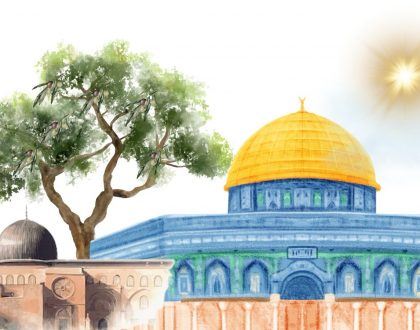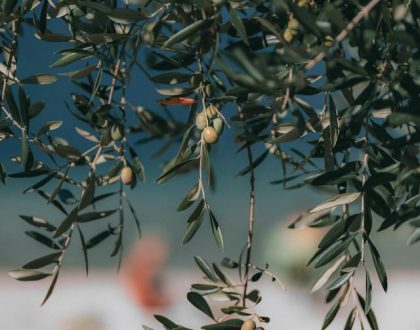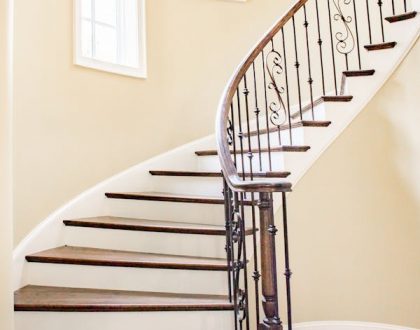Year Wrap-up
by Hana
As it’s the last Muslim assembly of the year, we thought it might be nice to do a bit of a wrap-up of some of the assemblies we’ve had. Looking back through what’s been covered… we’ve had quite a variety of topics.
Unavoidably, we’ve talked a lot about politics and global affairs. We’ve talked about the fact that according to the UN, the number of ‘forcibly displaced people’ worldwide is the highest it’s been since the Holocaust, among them 3.9 million Syrian refugees for whom there’s definitely a lot more we could be doing. Concern for the refugees flares up in the media every so often, triggered by pictures such as this one of Alan Kurdi that made waves in 2015, but soon fades despite the fact that relatively little of significance is really being done by those with the power to help these people.
We also talked about the Rohingya, a Burmese people who number 1 in every 7 stateless people in the world. Only 3% of their 1.3 million people legally exist, meaning they are denied basic human rights. The Rohingya are currently suffering what is basically a genocide – this picture shows a village that has been burned down – but one which is rarely, if ever, talked about in Western media, except last December when 23 prominent people, including 13 Nobel laurates, wrote an open letter criticising Aung San Suu Kyi (not the president but generally accepted to be running the country) who, though a Nobel Peace Prize winner herself, has done nothing to prevent this ethnic cleansing.
And, of course, we’ve talked about Donald Trump and his travel ban, but also how he himself is just a victim of media propaganda presenting all Muslims as terrorists, whereas in fact all the members of ISIS are just 0.001% of the world’s Muslims. Since 9/11, for every one person killed by ‘Muslim’ extremists, there have been 4300 murders for other reasons. More people in the US are killed by falling out of bed than by self-styled ‘jihadists’.
Also, side note: jihad in true Islam actually refers to an internal struggle with yourself to be a better person – the exact opposite of what a miniscule proportion of misguided extremists have corrupted it to mean.
We think this is a pretty powerful video of spoken word poetry talking about the double standard in the media and explaining how unfair it is to label all Muslims as terrorists based on the actions of a tiny minority.
But it hasn’t been all doom and gloom: you might remember that we had a debate on the education system. Islam has three phases of childhood. In the first, children stay at home until they are seven years old, playing and learning manners and morals, and it’s only after that that they are sent to school. This is very similar to the system in Finland, where obligatory schooling is only between 7-16 years old, there is little homework, emphasis on creativity, and almost no exams, yet they consistently perform in the top five in international studies.
We had one assembly on medicine in Islam, talking about Abul Qasim al-Zahrawi, 10th century surgeon who wrote a medical encyclopaedia which included two hundred different surgical tools not all that different to the ones still used today, and he pioneered medical techniques like the tracheotomy. Iraqi doctors in the 10th century removed cataracts using a simpler version of the technique still used, and Turkish people were vaccinating their children against cowpox in the 1600s. L6ths who took GCSE history will know about William Harvey, the British physician who researched blood circulation in the 16th century, but in fact Syrian scholars had a detailed and accurate understanding of the lungs and circulatory system three hundred years before he was even born.
We’ve had a couple of speakers come in as well. If you remember Mrs Saithna, who talked about friendship, and how important it is to choose good friends, because the people we spend time with will rub off on us.
We also had Claire Ali, who talked about how essentially she found Islam just by having an open mind, traveling the world and being so impressed by the culture of generosity and openness in Muslim countries. Fun fact: Yokozawa Sensei, ex-Japanese teacher from the Junior school who lots of you will definitely remember, has spent the last year also traveling the world with her husband. They cycled all the way from Thailand to Portugal, yet she says that out of all the countries they visited, her favourite was Iran – a Muslim country – because the people there were friendliest.
At Christmas, we talked about the nativity, and how our version in the Quran looks less like this, which we’re all familiar with, and more like this this. Even though both Mary and Jesus are incredibly important in Islam, our version of the birth story has some key differences, such as the total absence of Joseph, the stable, the shepherds and the three wise men.
The one thing we share is the Angel Gabriel coming to tell Mary she was pregnant, but beyond that our version is practically unrecognisable as the same story. The whole miracle of Jesus is that he had no father, so for us Joseph is basically irrelevant. Instead, Muslims believe that Mary, alone, moved away to a remote area, where she had her baby under a palm tree as she dealt with a lot of pain – the Bible kind of glosses over the pain of childbirth but the Quran is very clear about that.
But even though we have some differences, another assembly we had was on the similarities between the three Abrahamic faiths. Obviously they all believe in the one God, and we all share the prophets – Noah, Joseph, Jonah, etc. – but there’s more to it than that. For example, although Judaism’s food laws are quite a lot more detailed than Islam’s, we do share key rules about their meat, and Kosher meat is actually considered Halal.
Charity is a major part of all three religions, with Muslims and Jews obliged to donate a certain proportion of their wealth every year, and giving extra heavily encouraged in all three. Also, all three religions have or had some obligatory fasting – Judaism has Yom Kippur, Christianity has Lent (though the fasting aspect has been somewhat diluted through history), and obviously Islam has the month of Ramadan, which we’re currently in!
Before half term we also talked about the health benefits of fasting; how it lowers cholesterol and decreases the risk of heart disease, contributes to weight loss and may even improve brain function! Another benefit of Ramadan became apparent last week when the Grenfell tower caught fire. In Ramadan many people pray through the night, and especially at this time of year because sunset and sunrise are so close together, many people have been staying awake until about three in the morning. This meant that when the fire broke out soon after midnight, Muslims nearby were able to sound the alarms and provide aid, and we have a video.
Overall, the most important thing we hope you take away from these assemblies is that really, whatever our beliefs or practices, underneath all that we’re really all the same. Whether or not you believe in God, whether you think Jesus was born in a stable or outdoors, or if you really couldn’t care less, as the people in the video said, ultimately we’re all people, and we all have more in common than we have different.
We will leave you with one last video, one that you’ve all seen before, and which was shown in an assembly earlier this year, which we think shows that message quite nicely. Thank you for coming to Muslim assembly this year, and happy Eid to you all.
Written by Hana Khan in 2017
Recommended Posts

Masjid al Aqsa – why it has a very special place in our hearts
November 29, 2023

Palestine: The Holy Land
November 23, 2023

